해커스그룹 사이트 리스트
- 방문자 수 1위 유학 커뮤니티랭키닷컴 유학/어학연수 분야 기준
방문자수 1위, 2021년 1월 3,4주 기준 - 해커스어학원
- 해커스인강
- 해커스 유학컨설팅
- 해커스 사업군 전체보기 >
본문시작
해커스빌리지
- 해커스 단기고득점 비결
- 해커스빌리지
- 유용한 학습컨텐츠
|
|||||||||||||||||||||||||||||||||||||||||||||||||||||||||||||||||||||||||||||||||||||||||||||||||||||||||||||||||||||||||||||||||||||||||||||||

|
|||||||||||||||||||||||||||||||||||||||||||||||||||||||||||||||||||||||||||||||||||||||||||||||||||||||||||||||||||||||||||||||||||||||||||||||
고우해커스는 어학시험 분야 베스트셀러 교재의 정보를 제공합니다. 열기 버튼을 클릭하면 해커스 교재 순위를 확인할 수 있습니다.
열기 ▼
해커스 교재 순위 (2021/01/05 기준)
-
[19년 연속 (토플)베스트셀러 1위 해커스] [해커스어학연구소]알라딘 외국어 베스트셀러 토플 분야 (2002~2020 역대베스트 기준,Grammar 4회/Voca13회/Reading 2회)
[해커스 토플 리딩 베이직 3rd Edition] 알라딘 신간 베스트셀러 토플 리딩 기준 1위(2015년 8월 31일 기준)
[해커스 토플 리스닝 베이직2nd] 알라딘 신간 베스트셀러 외국어 분야 토플 리스닝 기준 1위 (2015년 10월 15일 기준)
[해커스 토플 스피킹 베이직 3rd Edition] 알라딘 토플 Speaking 1위(2018년 02월 02주 기준)
[해커스 토플 라이팅 베이직2nd] 알라딘 신간 베스트셀러 외국어 분야 토플 리스닝 기준 1위 (2015년 10월 15일 기준)
[해커스 토플 리딩 인터미디엇 (3rd Edition)] 알라딘 신간 베스트셀러 외국어 분야 토플 리딩 기준 1위 (2015년 10월 15일 기준)
[해커스 토플 리스닝 인터미디엇 (2nd Edition)] 알라딘 토플 Listening 1위 (2017년 10월 2주,2017년 11월 4주,2017년 12월 2주)
[해커스 토플 스피킹 인터미디엇 (3rd)] 알라딘 토플 Listening 1위 (2017년 10월 2주,2017년 11월 4주,2017년 12월 2주)
[해커스 토플 라이팅 인터미디엇 (3rd Edition)] 알라딘 토플 Writing 1위 (2017년 11월 3주)
[스타토플 실전 리딩] 교보문고 토익토플 베스트셀러 (2018.03.26 기준)
[스타토플 실전 라이팅] 교보문고 토익토플 베스트셀러 (2018.03.30 기준)
[스타토플 실전 리스닝] 교보문고 토익토플 베스트셀러 (2018.03.29 기준)
[스타토플 실전 스피킹] 교보문고 토익토플 베스트셀러 (2018.03.29 기준)
[해커스 토플 리딩 3rd] 교보문고 토익토플 베스트셀러 토플리딩 기준 1위(2018.03.31 온라인주간집계 기준)
[해커스 토플 리스닝 3rd] 교보문고 외국어 베스트셀러 토플 분야 1위 (2018.03.30 온라인주간집계 기준)
[해커스 토플 스피킹 4판] 알라딘 토플 Speaking 분야 1위 (2018년 03월 03주 기준)
[해커스 토플 라이팅 3rd Edition] 알라딘 토플 Writing 분야 1위 (2018년 03월 03주 기준)
[해커스 보케블러리 2nd] YES24 국어/외국어 사전 영어-TOEFL/SAT/GRE 유학관련서 분야 1위 (2018년 03월 04주)
[해커스 보케블러리(2nd)] 2018 교보문고 상반기 종합 베스트셀러 토익/토플 분야 베스트셀러
[해커스 토플 액츄얼 테스트 리딩 2nd] 교보문고 외국어 베스트셀러 토플 리딩 실전서 기준 1위(2015.12.16 온라인 주간집계)
[해커스 토플 액츄얼 테스트 리스닝 3rd] 교보문고 외국어 베스트셀러 토플 리스닝 실전서 기준 1위(2015.12.16 온라인 주간집계
[해커스 토플 액츄얼 테스트 스피킹 2nd] 알라딘 토플 Speaking 1위 (2015년 7월 3주, 2017년 7월 5주,2018년 3월 2주)
[해커스 토플 액츄얼 테스트 라이팅 2nd] 알라딘 토플 실전 1위 (2016년 4월 3주, 2017년 5월 3주)
[해커스 토플 CBT 그래머] 알라딘 토플 베스트셀러 토플그래머 기준 1위 (2014년 4월 3주, 2014년 9월 3주) 알라딘 토플 베스트셀러 (2008년~2014년 2월 3주, 2014년 2월 5주~2014년 4월 1주, 2014년 4월 3주~2014년 5월 4주, 2014년 6월 2주~2014년 9월 4주, 2014년 10월 1주~2014년 10월 5주)
[해커스 토플 CBT 리딩] YES24 토플 베스트셀러 (2008년~2014년 11월)
[해커스 토플 CBT 리스닝] 알라딘 토플 베스트셀러 (2008년~2012년, 2014년 6월 2주, 2014년 7월 5주~2014년 8월 1주,2014년 9월 2주)
[해커스 라이팅 스타트] 알라딘 토플 베스트셀러 토플라이팅 기준 1위 (2014년 4월 3주~2014년 4월 4주) 알라딘 토플 베스트셀러 (2014년 1월 1주~2014년 10월 5주)
[해커스 리딩 스타트] YES24 토플 베스트셀러 (2008년~2014년 11월)
[해커스 그래머 스타트] 알라딘 토플 베스트셀러 토플그래머 기준 1위 (2014년 1월 1주~2014년 4월 2주, 2014년 4월 4주~2014년 5월 3주, 2014년 5월 5주~2014년 6월 2주, 2014년 6월 4주~2014년 9월 2주, 2014년 9월 4주~2014년 10월 2주, 2014년 10월 4주~2014년 10월 5주) 알라딘 토플 베스트셀러 (2013년~2014년 10월 5주)
[해커스 리스닝 스타트] YES24 토플 베스트셀러 (2008년~2013년 10월, 2014년 2월~2014년 11월)
[해커스 리딩 인트로] 알라딘 토플 베스트셀러 (2014년 1월 1주~2014년 4월 1주, 2014년 5월 3주~2014년 10월 5주)
[해커스 리스닝 인트로] 알라딘 토플 베스트셀러 (2014년 1월 1주~2014년 7월 2주, 2014년 7월 4주~2014년 10월 5주)
[그래머 게이트웨이 베이직] 교보문고 외국어 베스트셀러 1위 (2018.03.07 인터넷 일간베스트 기준)
[그래머 게이트웨이 베이직] 교보문고 외국어 베스트셀러 영어문법 분야 TOP2 (2018년 8월 9일 온라인 주간집계 기준)
[그래머 게이트웨이 인터미디엇] 교보문고 외국어 베스트셀러 영어문법 분야 1위 (2017.9.7 온라인주간집계 기준)
[그래머 게이트웨이 인터미디엇] 교보문고 외국어 베스트셀러 영어문법 분야 TOP2 (2018년 8월 9일 온라인 주간집계 기준)
[해커스 슈퍼보카] YES24 영어어휘 베스트셀러 (2008년~2014년 11월)
[아이엘츠 베스트셀러 TOP8 석권/장악] YES24 국어외국어사전 IELTS 분야(2018.03.12 YES24 베스트셀러 기준)
[스타 아이엘츠 실전 Writing (Academic Module)] 교보문고 토익토플 베스트셀러(2018.03.30 기준)
[해커스 아이엘츠 베이직 리딩] YES24 국어외국어사전 IELTS 분야 1위(2018년 5월 1주 YES24 주별 베스트 기준)
[해커스 아이엘츠 베이직 리스닝] YES24 국어외국어사전 IELTS 분야 1위(2018년 6월 1주 YES24 주별 베스트 기준)
[해커스 아이엘츠 베이직 라이팅] YES24 국어외국어사전 IELTS 분야 1위(2018년 4월 3주 YES24 주별 베스트 기준)
[해커스 아이엘츠 베이직 스피킹] YES24 국어 외국어 사전 베스트셀러 IELTS 분야(2021년 1월 1주, 주별 베스트 기준)
[해커스 아이엘츠 리딩] 교보문고 외국어 베스트셀러 SAT/GRE//GMAT/IELTS 분야(2021.12.31, 온라인 주간 집계 기준)
[해커스 아이엘츠 리스닝] 교보문고 외국어 베스트셀러 SAT/GRE/GMAT/IELTS 분야 (2020.10.06, 온라인 주간 집계 기준)
[해커스 아이엘츠 라이팅] 교보문고 외국어 베스트셀러 SAT/GRE/GMAT/IELTS 분야 1위 (2021.01.04 온라인 주간 집계 기준)
[해커스 아이엘츠 스피킹] YES24 국어외국어사전 IELTS 분야 1위(2018년 2월 4주 YES24 주별 베스트 기준)
[해커스 토익 보카] (2019)] YES24 국어 외국어 사전 베스트셀러 어휘/VOCA 분야 1위 (2018년 12월 13일 yes24 베스트셀러 기준)
[해커스 토익 보카] (2019)] 알라딘 외국어 베스트셀러 토익 분야 1위(2018년 12월 2주, 주간베스트 기준)
[해커스 토익 보카] (2019)] 반디앤루니스 외국어/사전 베스트셀러 1위(2018.12.19 기준)
[해커스 토익 보카] (2019)] 알라딘 외국어 베스트셀러 1위(2018.12.10, 신간베스트 기준)
[해커스 토익 보카] (2019)] YES24 국내도서 20대 남녀기준 베스트셀러 1위 (2019년 1월 24일 기준)
[해커스 토익 스타트 리딩] 교보문고 TOEIC/TOEFL 분야 베스트셀러 1위 (2017.09.23, 인터넷 일간베스트 기준)
[해커스 토익 스타트 리스닝] 교보문고 외국어 베스트셀러 1위(2016.4.5 인터넷 일간베스트 기준)
[한 권으로 끝내는 토익 700+(LC+RC)] 알라딘 외국어 베스트셀러 토익 종합 분야 1위(2018.10월 1주, 주간베스트 기준)
[해커스 토익 중급 리딩] 알라딘 외국어 베스트셀러 1위 (2016.4.5 어제베스트 기준)
[해커스 토익 중급 리스닝] 교보문고 토익토플 베스트셀러 (2018.09.28, 인터넷 일간베스트 기준)
[한 권으로 끝내는 해커스 토익 실전 LC+RC (모의고사+해설집)] 알라딘 외국어 베스트셀러 토익 종합 분야 1위(2018.8월 4주, 주간베스트 기준)
[해커스 토익 Reading (2018 최신개정판)] 교보문고 토익토플 베스트셀러 1위(2018.09.28, 인터넷 일간베스트 기준)
[해커스 토익 Reading (2018 최신개정판)] 알라딘 외국어 베스트셀러 (2017.12.11 신간베스트 기준)
[해커스 토익 Listening (2018 최신개정판)] 알라딘 외국어 베스트셀러 토익Listening 분야 1위(2018.7월 1주, 주간베스트 기준)
[해커스 토익 실전 1000제 1 리딩 문제집] 교보문고 토익/토플 인터넷 일간 베스트셀러 (2018.9.30 기준)
[해커스 토익 실전 1000제 1 리딩 문제집] 알라딘 외국어 베스트셀러 토익 실전분야(2018년 7월 1주 주간 베스트 기준)
[해커스 토익 실전 1000제 1 리스닝 문제집] 교보문고 토익토플 베스트셀러 1위(2019.04.17, 인터넷 일간베스트 기준)
[해커스 토익 실전 1000제 3 리딩 문제집] 알라딘 외국어 베스트셀러 토익 실전 분야 1위(2017.2월 1주, 주간베스트 기준)
[해커스 토익 실전 1000제 3 리스닝 문제집] 알라딘 외국어 신간베스트셀러 1위 (2017.1.9 신간베스트 기준)
[해커스 토익 실전 1000제 1 리딩 해설집] YES24 국어 외국어 사전 베스트셀러 기출문제/모의고사분야 (2019년 1월 4주 주별베스트)
[해커스 토익 실전 1000제 2 리스닝 해설집] YES24 국어 외국어 사전 베스트셀러 기출문제/모의고사분야 (2019년 1월 4주 주별베스트)
[해커스 토익 실전 1000제 3 리딩 해설집] YES24 국어 외국어 사전 베스트셀러 기출문제/모의고사분야 (2019년 1월 4주 주별베스트)
[해커스 토익 실전 1000제 3 리스닝 해설집] YES24 국어 외국어 사전 베스트셀러 기출문제/모의고사분야 (2019년 1월 4주 주별베스트)
[해커스 토익 PART 7 집중공략 777] YES24 국어 외국어 사전 베스트셀러 기출문제/모의고사분야 (2019년 1월 4주 주별베스트)
[스타토익 필수 문법 공식 Part 5&6] 알라딘 외국어 베스트셀러 토익Grammar 분야 1위(2018.10월 1주, 주간베스트 기준)
[8년 연속 베스트셀러 1위 해커스 토익스피킹] 교보문고 종합 베스트셀러 TOEIC/TOEFL 분야 토익스피킹 기준 (2011 ~ 2018 연간 베스트셀러)
[토익스피킹 베스트셀러 TOP 3 / 2019 토익스피킹(토스) 베스트셀러 TOP3 석권/장악] YES24 국어외국어사전 베스트셀러 토익Speaking & Writing Test분야(2018.01.04 YES24 베스트셀러 기준)
[2주 만에 끝내는 해커스 토익스피킹 스타트 (2018 최신개정판)] YES24 국어 외국어 사전 베스트셀러 토익Speaking & Writing Test/TOEIC S & W 분야 1위(2018년 2월 8일 YES24 베스트셀러 기준)
[2주 만에 끝내는 해커스 토익스피킹 Lv 7,8 (2018 최신개정판)] 2018 교보문고 상반기 종합 베스트셀러 토익/토플 분야 베스트셀러
[5일 만에 끝내는 해커스 토익스피킹 실전 모의고사 12회] 교보문고 국내도서 외국어 베스트셀러 수험영어 토익(Toeic) 분야 (2017년 6월 28일 주간베스트 기준)
[6년 연속 베스트셀러 1위 해커스 오픽] 알라딘 외국어베스트셀러 OPIc/인터뷰 영어 분야 (2013~2018 역대베스트 기준)
[오픽 베스트셀러 TOP 2 / 2019 오픽 베스트셀러 1위~2위 석권/장악] YES24 국어외국어사전 OPIC/G-TELP/ESPT외 기타 영어어학시험 분야(2018.01.07 YES24 베스트셀러 기준)
[2주 만에 끝내는 해커스 OPIc 오픽 START(Intermediate 공략)] 2018 교보문고 상반기 종합 베스트셀러 외국어 분야 베스트셀러
[2주 만에 끝내는 해커스 OPIc 오픽 Advanced 공략] 2018 교보문고 상반기 종합 베스트셀러 외국어 분야 베스트셀러
[해커스 뉴텝스 기출 보카] 교보문고 외국어 베스트셀러 텝스(TEPS) 분야 1위(2018.10.29, 온라인 주간집계 기준)
[해커스 뉴텝스 베이직 리딩] 교보문고 외국어 베스트셀러 텝스(Teps) 분야 (2019.01.07 온라인 주간집계 기준)
[해커스 뉴텝스 베이직 리스닝] 교보문고 외국어 베스트셀러 텝스(Teps) 분야 (2019.01.07 온라인 주간집계 기준)
[해커스 뉴텝스 중급 문법] 알라딘 외국어 베스트셀러 텝스 Grammar 분야 1위 (2018년 7월 4주 주간베스트 기준)
[해커스 뉴텝스 중급 독해어휘] 교보문고 외국어 베스트셀러 텝스(Teps) 분야 (2019.01.07 온라인 주간집계 기준)
[해커스 뉴텝스 중급 청해] 교보문고 외국어 베스트셀러 텝스(Teps) 분야 (2019.01.07 온라인 주간집계 기준)
[해커스 뉴텝스 리딩] YES24 국어 외국어 사전 베스트셀러 독해/문법/RC 분야 1위 (2018년 05월 03일 YES24 베스트셀러 기준)
[해커스 뉴텝스 리스닝] YES24 국어 외국어 사전 베스트셀러 청해/LC 분야 1위 (2018년 05월 03일 YES24 베스트셀러 기준)
[서울대 텝스관리위원회 공식 최신기출 1200제 1] YES24 국어외국어 사전 베스트셀러 기출문제/모의고사 분야 1위 (2017년 4월 3주 온라인주간집계 기준)
[서울대 텝스관리위원회 공식 최신기출 1200제 2] YES24 텝스 베스트셀러 텝스실전서 기준 1위 (2014년 8월 1주, 2014년 8월 3주~2014년 12월)
[서울대 텝스관리위원회 공식 최신기출·적중예상 1200제 3] 알라딘 텝스 종합 분야 1위 (2018년 1월 3주~2018년 1월 4주)
[서울대 텝스관리위원회 공식 최신기출 Speaking&Writing] [서울대 텝스관리위원회 공식 최신기출 Speaking&Writing] 알라딘 텝스 베스트셀러 (2018년 1월 4주)
[서울대 텝스관리위원회 공식 최신기출 i-TEPS] 서울대 텝스관리위원회 공식 최신기출 iTEPS] 교보문고 토익토플 베스트셀러 (2017년 12월 18일~2017년 12월 22일)
[해커스 뉴텝스 최신기출유형 실전모의고사] YES24 국어 외국어 사전 베스트셀러 텝스/TEPS 기출문제/모의고사 분야 1위 (2018.06.25 주별 베스트 기준)
[서울대 텝스공식문제 최신기출. 2] [서울대 텝스공식문제 최신기출 2 문제와 해설] 알라딘 텝스 베스트셀러 (2018년 1월 3주)
[해커스톡 영어회화 10분의 기적 : 패턴으로 말하기] 교보문고 외국어 베스트셀러 TOP3 (2018년 8월 17일 인터넷 일간 베스트 기준)
[해커스톡 자동발사영어 왕초보 말문트기 1] 교보문고 외국어 베스트셀러 영어회화/청취 분야 (2017년 12월 05일, 온라인 주간집계 기준)
[해커스톡 자동발사영어 왕초보 말문트기 2] 교보문고 외국어 베스트셀러 영어회화/청취 분야 (2017년 12월 05일, 온라인 주간집계 기준)
[해커스톡 자동발사영어 기초영어 말하기 1] 교보문고 외국어 베스트셀러 영어회화/청취 분야 (2017년 12월 05일, 온라인 주간집계 기준)
[해커스톡 자동발사영어 기초영어 말하기 2] 교보문고 외국어 베스트셀러 영어회화/청취 분야 (2017년 12월 05일, 온라인 주간집계 기준)
[해커스톡 자동발사영어 레벨업 길게 말하기 1] 교보문고 외국어 베스트셀러 영어회화/청취 분야 (2017년 12월 05일, 온라인 주간집계 기준)
[해커스톡 자동발사영어 레벨업 길게 말하기 2] 교보문고 외국어 베스트셀러 영어회화/청취 분야 (2017년 12월 05일, 온라인 주간집계 기준)
[해커스톡 영어회화 10분의 기적 시리즈 패턴]교보문고 외국어 일간 베스트셀러 기준 (2018.06.30 인터넷 일간베스트셀러 기준)
[해커스톡 영어회화 10분의 기적 시리즈 유명인] 교보문고 외국어 베스트셀러 1위 (2018.08.31 인터넷 일간베스트셀러 기준)
[해커스톡 영어회화 10분의 기적 시리즈 기초패턴] 교보문고 외국어 베스트셀러 1위 (2018.10.06 인터넷 일간베스트셀러 기준)
[해커스톡 영어회화 10분의 기적 시리즈 여행영어] YES24 국어 외국어사전 베스트셀러 여행회화 분야 1위 (2017.6, 월별 베트스셀러))(1판 기준)
[6년 연속 영문법 베스트셀러 1위 해커스 그래머 게이트웨이] 알라딘 외국어베스트셀러 영문법 분야 (2011~2016 역대베스트 기준)















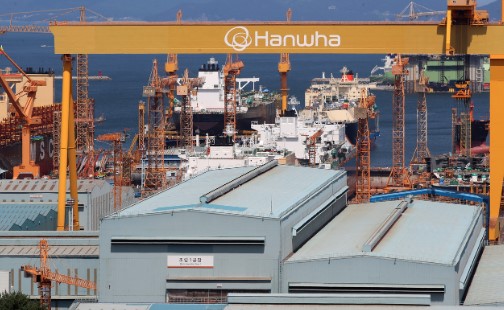

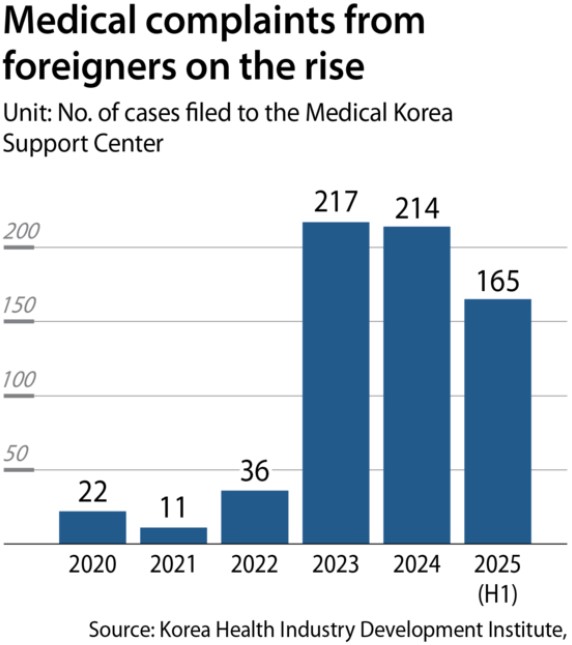
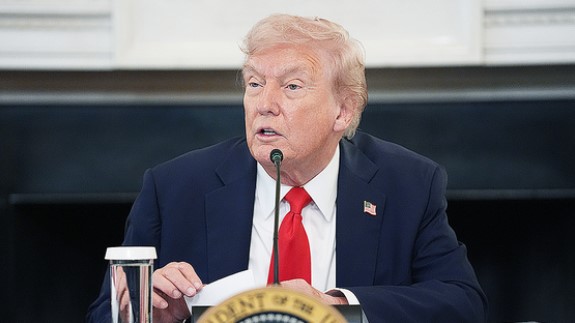
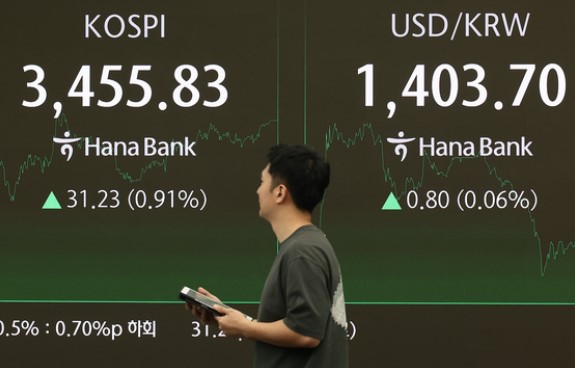
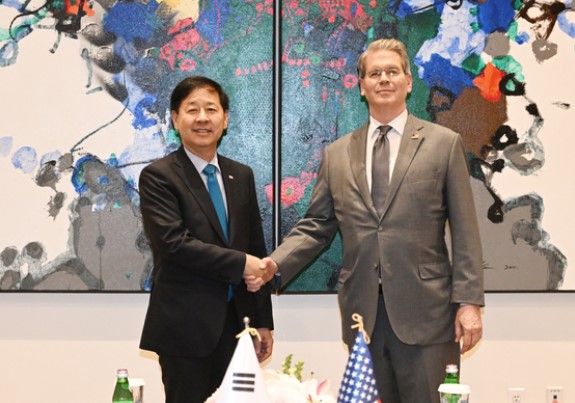
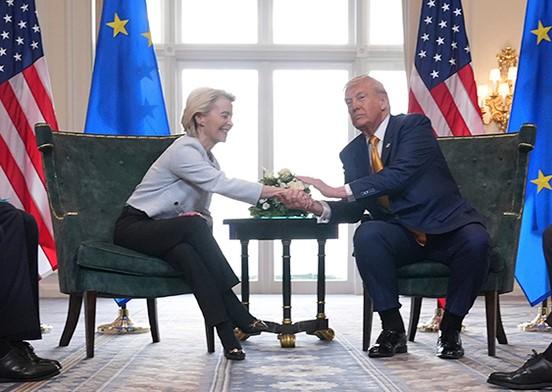

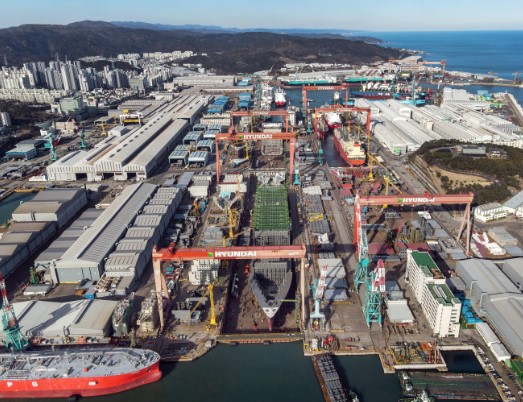
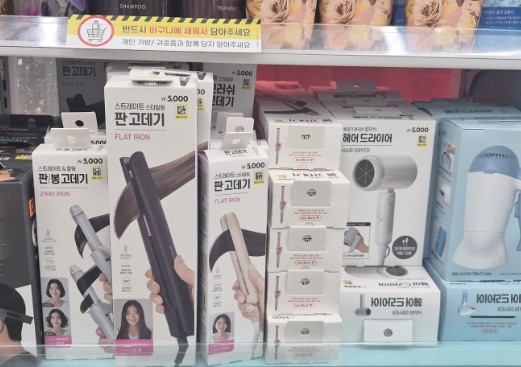








 불편사항 신고
불편사항 신고
